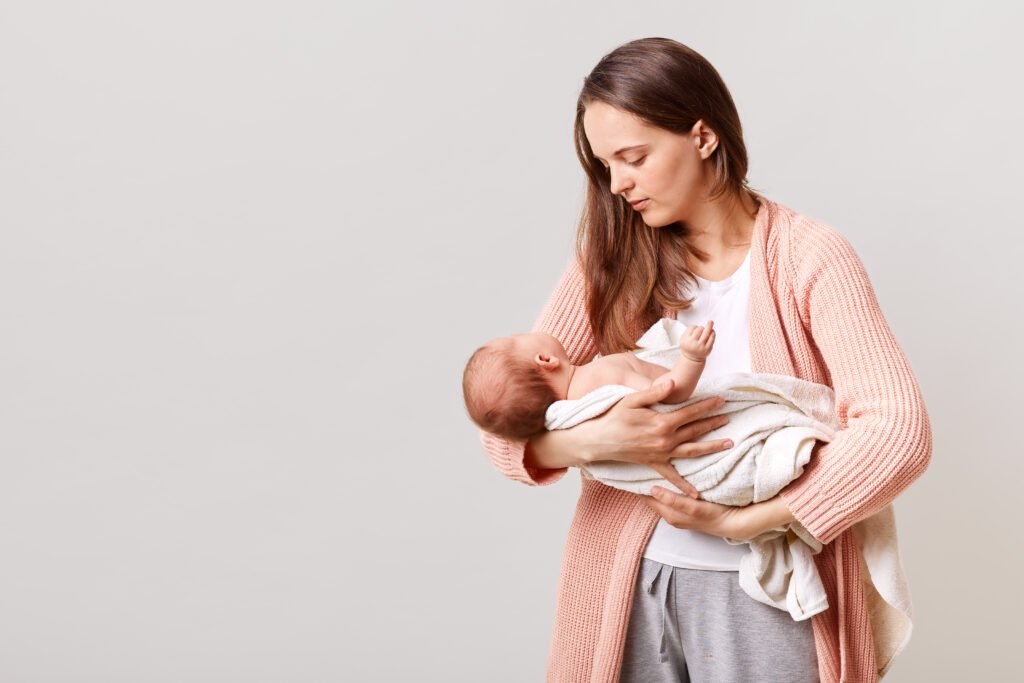

A woman’s experience of giving birth may be one of the most intense and life-altering experiences she has had so far. Traditionally, support from partners, family members, healthcare providers, and doulas was all crucial in comforting and helping out during this most crucial time. However, according to some recent surveys, support during childbirth has been on the decline. What this decline means is that a lot is being written about new mothers – their well-being, physical and otherwise, mental and emotional. Consider the new evidence to emerge regarding the lack of childbirth support for new mothers.
Decline in Childbirth Support: A Troubling Trend
Many studies and surveys affirm that the support provided to women during childbirth has gradually been losing ground over the years. A 2023 RCM survey in the U.K. revealed that about one-third of the laboring women were not supported appropriately by the nursing staff. Statistics concerning the U.S. indicate that about nearly 40 percent of mothers say that they are not adequately supported during childbirth.
Major Contributing Factors to the Decline in Support of Childbirth
The causes for this decline are multifaceted, but some of the major factors include the following:
1. Shortage of Staffing in Healthcare facilities
Across the world, hospitals and maternity wards have been affected by low staffing due to various reasons, such as budget cuts, burnout, and the COVID-19 pandemic. The World Health Organization estimates that there are approximately 900,000 midwives globally in shortage, which affects the quality of care given to women during labor.
- The labor and delivery departments are often short-staffed, according to many hospitals, which means the work burden increases exponentially on the few existing staff members, thereby reducing the level of one-on-one care women receive. A shortage means there may be less attention to mothers, delayed responses to mothers’ needs, and less time to discuss their birth plans or preferences with health providers.
2. COVID-19 Restrictions
- The COVID-19 pandemic also brought forth some very tough visitation and support restrictions in hospitals that have significantly limited how many family members, doulas, and other support persons are allowed to be present during the birth. While most have eased their restrictions, some hospitals still have them in place due to continued health concerns or understaffing issues, leaving mothers with fewer sources of support during labor.
Another was a delay in accomplishing elective procedures; there was also an overstretching of healthcare resources, which made them include elective procedures only in the schedules of a hospital, leaving maternal care to be poorly attended to.
- Increased C-Sections and Medicalized Births:
C-sections and other interventions have increased over time and are often imposed for pragmatic reasons, such as a lack of resources or the policies of hospitals. Support persons accompanying women who experience medicalized births are generally denied access to the operating room floor to fewer than three and in some cases are barred entirely. This can make labor lonely and frightening.
- Many women in the U.S. and worldwide complain that they cannot afford doulas, midwives, and other support for birthing outside of hospitals. Again, the mothers will be exposed to lower support, and once more, because the family members won’t be able to reach them.
High support for childbearing births has serious, very influential implications for new mothers. Here are a few of the critical ways through which it affects the mothers:
- Increased Stress and Anxiety
The lack of support during labor can cause more stress and anxiety in a birthing mother. According to evidence, the presence of support during childbirth reduces the stress hormones associated with a mother, in turn enhancing labor outcomes and determining better experiences of delivery. Whenever a woman is allowed to feel unsupported, she will definitely go through increased levels of anxiety and fear, all adverse factors that influence labor progression. - Risk of Complications
Support throughout the process results in better labor time, fewer complications, and the need for epidurals, cesarean sections, or forceps deliveries. Without proper support, mothers face the risk of a protracted process in labor, more chances of medical interventions that may pose greater risks to mother and baby. - Postpartum Depression and Mental Health Challenges
In contrast, studies suggest that unsupported mothers are more likely to experience postpartum depression, anxiety, and PTSD. A study by Postpartum Support International suggests that “30% of new mothers reported that inadequate support during childbirth contributed to postpartum mental health struggles. Other studies indicate that for many women, the birthing experience sets the tone for their early motherhood experience; feeling unsupported can leave emotional scars and hinder bonding with the baby. - Diluted Mother-Baby Bonding Skin-to-skin contact, lactation support, and promotion immediately after birth are key elements that facilitate mother-baby bonding. If healthcare workers are stretched to deliver constant support, then new mothers will likely feel lonely and overwhelmed, thus impacting their bonding experience and breastfeeding outcomes.
Healthcare Systems to Improve Childbirth Support
Decline in birth support needs to be counteracted in the wide-ranging transformation within health care systems. There are several steps that can be adopted for reversing this issue:
1. Staffing and Training Investment
Invest more in the education and employment of more midwives, nurses, and doulas. Expanding the staff at maternity hospitals is sure to ensure that all women receive quality, individualized attention and care. These factors may include loan forgiveness for practicing providers, better work-life and psychological well-being.
2. Doula and Midwife Support
- There’s been evidence to show that women who receive support during labor from a doula or a midwife tend to do better, have fewer interventions in medical areas, and so on. Some countries, including the U.K., now offer financial incentives for women to request doula support. More of this could prove useful in reaching many more women who otherwise could not afford it.
3. Flexible Hospital Policies
- Accommodate flexible policies to allow one or two support persons for labor, preferably members of the family or chosen birth companions. The comfort such familiar faces would bring would ease the stresses and most importantly, comfort and sustain mothers. Those hospitals implementing this policy should also consider offering virtual support in the case where in-person support is not possible.
4. Including Mental Health Support
Added to this would be making psychology treatments available within prenatal and postnatal care so that a mother can better cope with change and turmoil in the act of birth. Counseling before labor prepares a woman for what to expect during giving birth, and after giving birth therapy may guide them through experiences of birth and assumption of motherhood.
Conclusion
The decline in birth support is a matter of extreme concern where new mothers and their babies are concerned. However, with the limited resources worldwide, nursing shortages, and continued budgetary cuts, facing residual challenge from a long-lasting pandemic, there is a great need for support of maternal care in such a way that all women receiving care are treated sensitively and entirely. Investment in maternity care will ensure more birth assistant professionals are trained, and subsequently, policies that support emotional support during delivery are implemented and thus ensure a much safer and positive birthing experience. Adequate support is no longer a luxury for first-time mothers but a requirement, and with it, their children’s motherhood journey will be shaped for years after.

